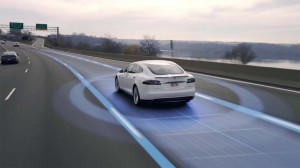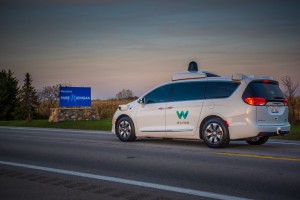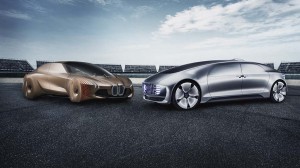Automakers are investing billions of dollars into the research and development of autonomous vehicles with some already offering limited amounts of self-driving capability. However, is this what automobile owners really want?
There is new evidence they’re quickly warming to the idea of a self-driving vehicle.
According to a survey of 1,146 automobile owners published by online car marketplace CarGurus, they’re both more enthusiastic and less worried about driverless cars than a year ago, and close to a third think they’ll own a self-driving car within the next decade.
Thirty-two percent of respondents (up from 21% in 2018) say they’re “excited” about the development of self-driving cars while 37% say they’re “concerned” (unchaged from 37%). Among those who expressed misgivings, 87% said they wouldn’t be comfortable relying on self-driving cars for safety and cited liability, expense, and technological immaturity as their other top fears.
(Waymo to build self-driving cars in Michigan. Click Here for the story.)
The results should make automakers happy. Last fall, a PSB Research study showed 43% of consumers don’t feel safe around autonomous cars, and in three separate studies this past summer — by the Brookings Institution, think tank HNTB, and the Advocates for Highway and Auto Safety (AHAS) — more than 60% said they were “not inclined” to ride in self-driving cars, and almost 70% expressed concerns about sharing the road with them.
Considering there may be as many as 25 million self-driving vehicles on the road by 2030, the change in sentiment should make automakers feel more confident in their product development plans.
“Consumer sentiment around self-driving cars is changing fast, with enthusiasm rapidly replacing skepticism,” said CarGurus’ director of customer insights Madison Gross.
(Click Here for details about Tesla’s latest move toward full autonomy in its vehicles.)
“These benchmarked results demonstrate that today’s consumers are becoming more comfortable with the idea of either owning an autonomous vehicle, or having them on the road, and it will be fascinating to continue to monitor this perception shift.”
About 27% of survey-takers told CarGurus that they’re looking forward to piloting a self-driving car (compared with 26% who aren’t), while the majority are still worried both about being a passenger in a driverless car (49% compared with 30%) and sharing the roads (52% compared with 18%) with them.

The viability of Tesla's Autopilot is gaining acceptance with consumers as autonomous vehicle technology continues to be developed.
The acceptance numbers could be higher if it weren’t for some high-profile crashes or fires by Uber and Tesla vehicles. On the flip side, Waymo’s autonomous ride service, Waymo One, is helping to turn the tide in favor of these vehicles.
(To see more about BMW and Daimler’s latest autonomous vehicle partnership, Click Here.)
The survey noted that close to 29% said they have faith in Tesla, up from 25% in 2018, while 9% trust Toyota; 7% trust Waymo; 5% trust Ford and Honda; 4% trust GM and Apple; 3% trust Volvo and Daimler; and 2% trust BMW. About 17% of consumers don’t trust any company, down from 27% last year.


